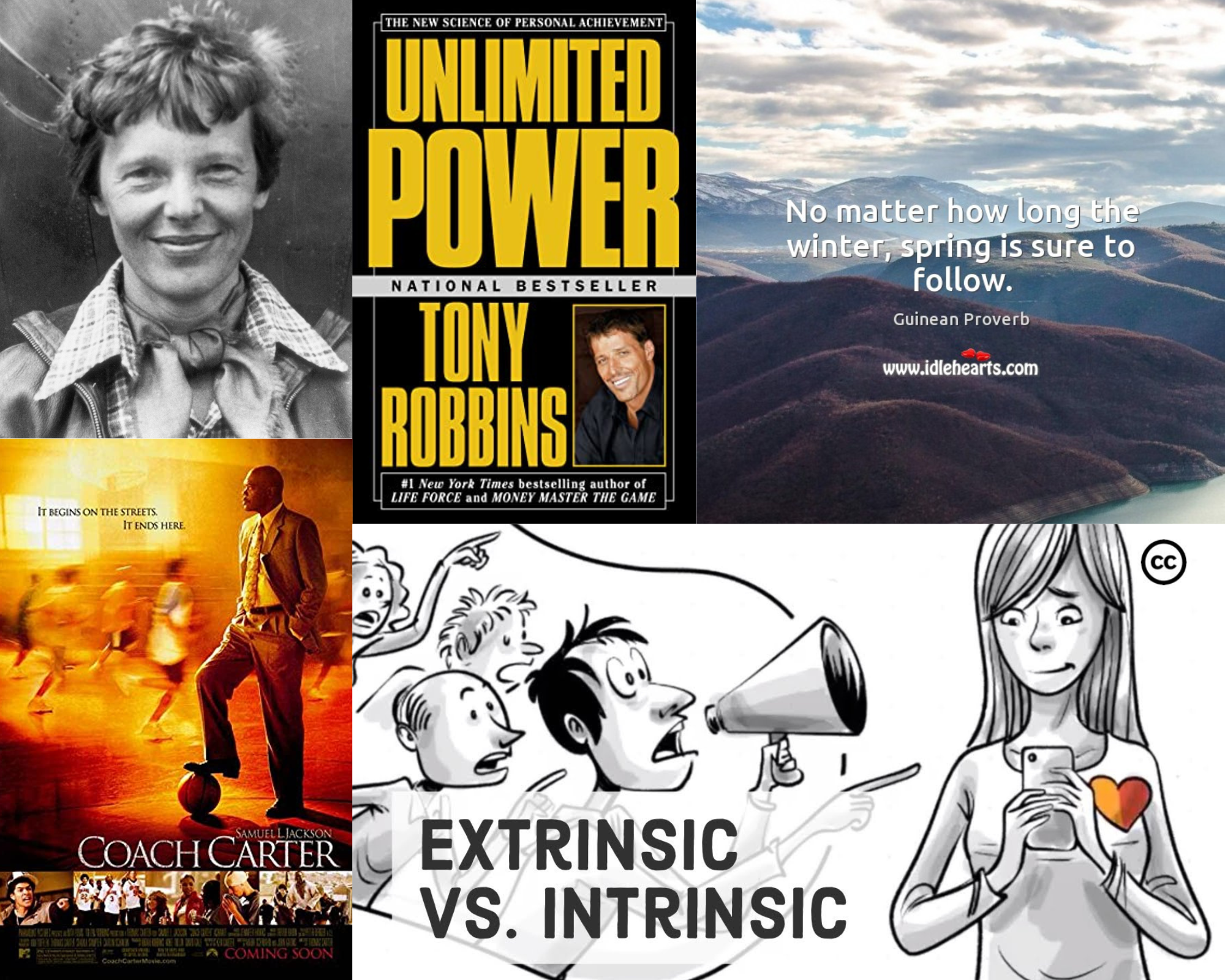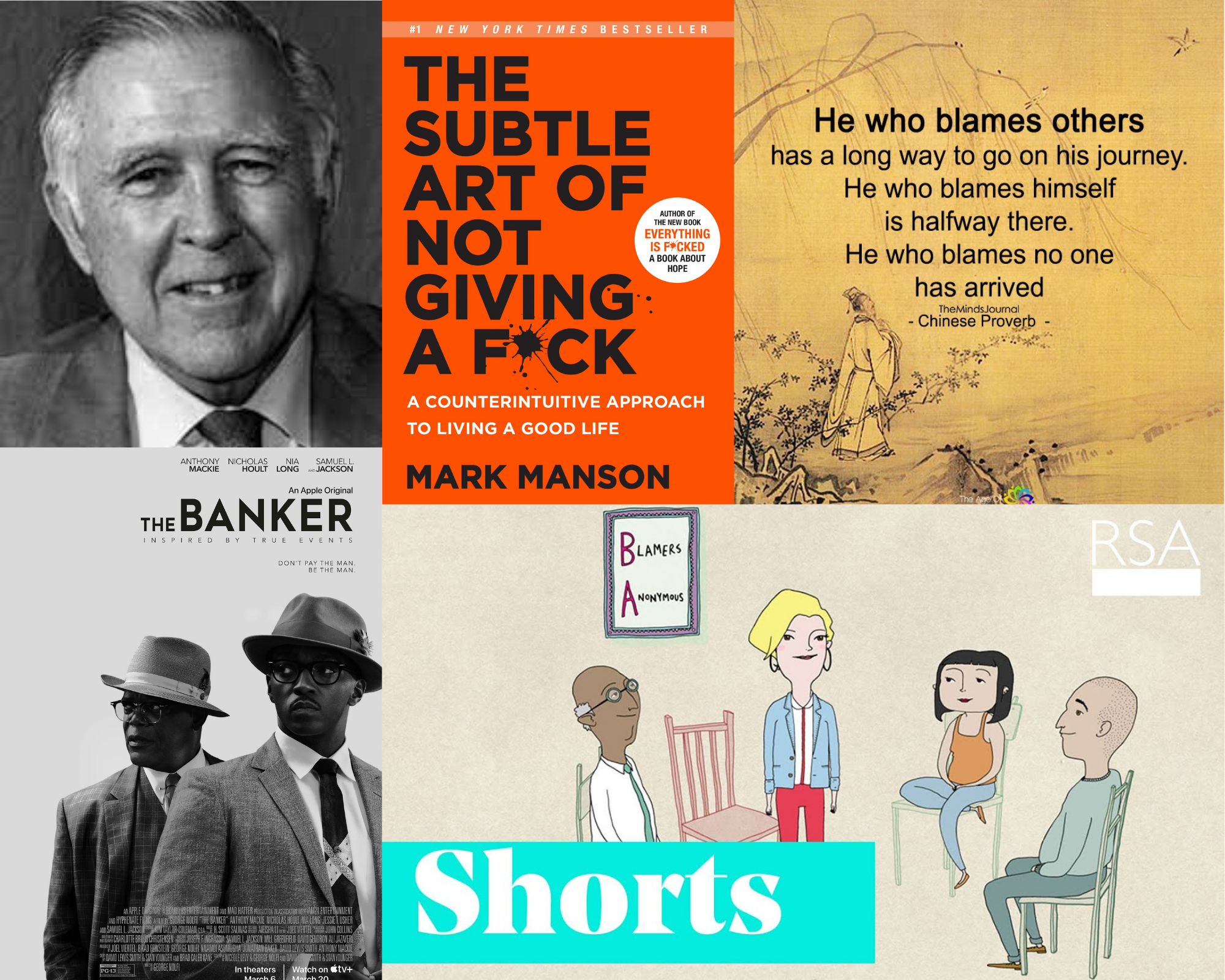Sunday Supplement #107 (May 28th, 2023)
Below is another Sunday Supplement with a quote worth sharing, a book worth reading, a movie worth watching, brainfood worth consuming, and a spiritual passage worth pondering.
Please take something away from these recommendations that enriches your week ahead!
Quote of the Week:
“The most effective way to do it is to do it.”
– Amelia Earhart
Book of the Week:
Unlimited Power – Anthony Robbins
I remember Tony Robbins being spoofed a lot when I was growing up. The self-help genre had a rep of just a bunch of hot air in most circles.
Thankfully, I found my way to the self-help genre in my early twenties. While some of it can be hot air, there are gems out there that share profound information for self-improvement.
I shared Tony Robbins’s Awaken The Giant Within in Sunday Supplement #30. In that post, I describe how I’m not a fan of his voice or seminars, but his books are gold.
Unlimited Power was Tony Robbins’s first published self-help book. I think Awaken the Giant Within is better, but Unlimited Power is worth the read.
The prompts Robbins provides in the book help get you out of your comfort zone, and his information is full of valuable tips and tools for making positive steps in your life.
Movie of the Week:
I’m a big fan of the sports genre in film. I think there are many life lessons that can be explored throughout the metaphor of sports.
Coach Carter is a fictional story about the real-life basketball coach Ken Carter and his decision to bench his entire team for breaking their academic contract with him.
Samuel L. Jackson plays Carter in the film, and he returns to the high school where he achieved great heights on the court.
Carter is dismayed by the state of the athletic program and the expectations of his students. He implements a rigorous program to help the students on the court and in the classroom.
The film is a pretty straightforward narrative, but the lessons around expectations and internal motivation leave a lasting impression that makes it more than a sports movie for me.
Brainfood of the Week:
Societal Expectations and Internal Desires | Sprouts
Sprouts starts their video by defining motivation as the experience of wanting something or wanting to avoid something.
They explain the breakdown of motivation into two contrary forces: extrinsic and intrinsic.
Extrinsic motivation drives thinking and behavior from the outside through rewards, while intrinsic motivation comes from within and is a form of natural curiosity.
The video offers an example of a child left to explore and a child guided by rules. It’s an oversimplified example, but it shows both benefits and downfalls.
I’ve featured an excellent book on the topic with a better breakdown of the subject in Sunday Supplement #97 – Mindset by Carol S. Dweck, Ph.D.
Sprouts makes educational videos about psychology, pedagogy, and child development. I’ve featured them in previous Sunday Supplements and enjoy their content.
Closing Spiritual Passage:
“No matter how long the winter, spring is sure to follow.”
– Guinean Proverb
This Guinea Proverb is straightforward but can be a powerful reminder not to slip into the mindset that bad times will always last.
I think these simple messages hold powerful truths that we can often forget when we find ourselves feeling low.
When I come across proverbs, verses, and quotes like these, I try to pause and reflect on how to move forward.
For this proverb, I think of the concept of spring and ask myself, besides knowing the spring will come, is there anything I can do in the winter to help take care of myself and prepare?
Pursue the little things that help you move forward and gain momentum, and have a blessed week ahead!
2 Comments
